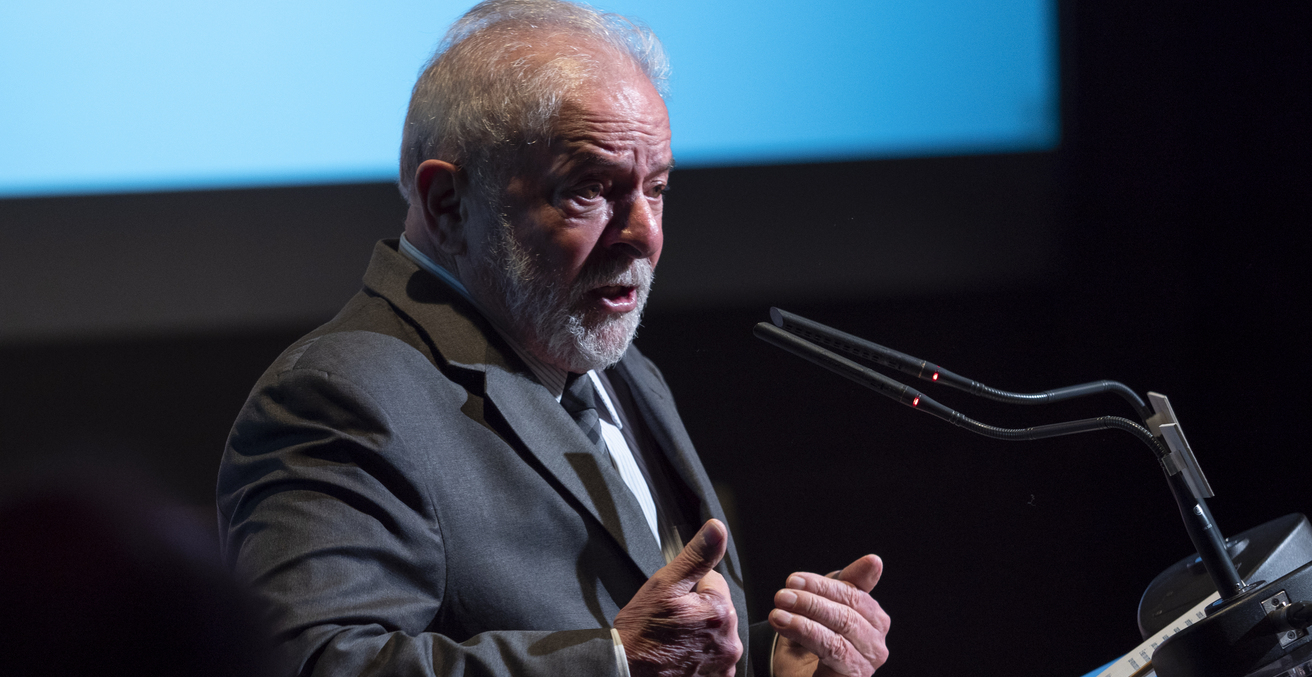Presidential Elections and Post-Truth Politics: A Crossroads for Brazil’s Democracy

Brazilians will go to the polls in October. After years of institutional erosion, this election will determine the future of democracy in Brazil.
Few presidential contests are set to capture as much global attention this year as Brazil’s election in October, seen by many as a crossroads for Brazil’s democratic future. The country’s political barometers are set to reach scorching temperatures in this clash of titans, fought in an arena of political extremes. Incumbent far-right President Jair Bolsonaro seeks re-election running under Brazil’s Liberal Party in what is likely to be a showdown with former President Luiz Inacio Lula da Silva, from the left-leaning Worker’s Party.
Lula was jailed in 2018 on corruption charges during the “Operation Car Wash” trials, which many argued was a political manoeuvre to keep him out of the 2018 presidential race. In 2019 his sentence was reformed on appeal by Brazil’s Supreme Court. Lula declared in January 2022 that Gerald Alckmin from Brazil’s centre-left PSB Party is likely to be his running mate. If Lula takes a softer political tone, consolidating a centre-left political platform, it might propel him towards another term in office.
According to the last Datafolha opinion poll, if elections were held today Lula would win in the first round with 48 percent of votes, followed by Bolsonaro with 22 percent. A third candidate, Sergio Moro from the Podemos Party, would sit at nine percent. Moro is a former Operation Car Wash judge, as well as former minister of justice in the Bolsonaro administration. Trailing further behind is Ciro Gomes from the Democratic Labour Party, at only seven percent. Ciro served as finance minister in the Cardoso administration and was governor of Ceará in Brazil’s northeast in the 1990s.
This year’s election is different from others since Brazil’s re-democratisation process. Bolsonaro’s far-right views, political polarisation, and attacks on Brazil’s democratic institutions are increasingly a matter of concern. Since the beginning of the pandemic, Bolsonaro has strategically used the greatest health crisis of this generation to create institutional chaos. As criticism of Bolsonaro’s handling of the pandemic hurts his approval rate, his political posturing is likely to become more combative. Bolsonaro’s use of fake news to instigate his support base, as well as to attack Brazil’s democracy and the STF, is set to climax during the most important presidential race in Brazil’s political history since the end of the military dictatorship in 1985.
Sowing the seeds of chaos: downplaying the coronavirus crisis
Bolsonaro downplayed the threat posed by COVID-19, declaring it a “minor cold” and that he was not concerned about contracting the virus because of his “athletic physique.” In 2020, when asked by the press about Brazil’s high numbers of coronavirus-related deaths, Bolsonaro brushed off any criticism. Since then, Bolsonaro has spread misinformation about the coronavirus, compromising Brazil’s response to the crisis. Brazil has the third-highest rate of coronavirus infections in the world at 24.3 million total cases, and the second highest number of deaths at 624,000.
Against the World Health Organisation’s (WHO) advice, Brazil’s health minister, Marcelo Queiroga, declared last year that mask-wearing is a personal choice. Adding to the controversy, a month later Queiroga suspended the vaccination of children aged 12-17. Amid Brazil’s Omicron outbreak, the immunisation campaign for children restarted only in January 2022. This week, Brazil’s Medical Association (AMB) published a manifesto critiquing Queiroga’s handling of the pandemic. STF Judge Rosa Weber has launched a legal investigation into the delay to include children in Brazil’s immunisation program amid an untamed pandemic.
The Omicron variant brings new challenges to Brazilians, as the country records 147,393 new cases a day – the highest infection rate since the beginning of the pandemic. Given that only 70 percent of the Brazilian population is double jabbed, Brazil’s health system will struggle to cope with this overpowering new wave.
Post-truth politics and fears for Brazil’s democratic future
During the pandemic Bolsonaro attacked Brazil’s institutions and consistently attempted to concentrate powers in the executive. Since 2020, the use of fake news has been weaponised by Bolsonaro and “Bolsonarists,” who instigated anti-democratic protests throughout the country and disparaged Brazil’s democratic institutions, the Congress, and the STF. When Bolsonaro struck a deal in 2021 with Brazil’s Centrão, a coalition of centre-right parties that aim for political leverage, Brazil’s executive significantly increased its influence over the legislature.
Today, the STF can be seen as the last institutional bastion of resistance against Bolsonaro’s megalomaniacal dreams of power. Throughout his term, Bolsonaro has launched personal attacks against STF judges. Last year, during Brazil’s Independence Day celebration, Bolsonaro’s rage against Brazil’s STF peaked. He declared: “We cannot continue to accept that a specific person from the branches of government continues to barbarize our population. We cannot accept political prisons in our Brazil,” referring to STF Judge Alexandre Moraes’ decision to imprison Bolsonarists involved in the dissemination of fake news and anti-democratic protests in 2020.
Bolsonaro’s crusades against Brazil’s judiciary and electoral system are matters of growing concern. In January this year, Bolsonaro made new disparaging remarks, suggesting STF judges Luiz Roberto Barroso and Alexandre de Moraes will “rig” Brazil’s presidential elections to benefit his political archrival, Lula da Silva. Bolsonaro’s anger towards the judiciary has reason. The STF’s decisions led to the arrest of Bolsonarists involved in anti-democracy protests, as well as to the introduction of new laws protecting Brazil’s electoral system from cyber-attacks and limiting the spread of fake news.
Brazil’s Parliamentary Justice Commissions investigating the use of fake news and Bolsonaro’s mishandling of the pandemic are also signs of hope for Brazil’s democracy. However, as Bolsonaro’s support dwindles and his opposition grows, his attacks on WHO guidelines and Brazil’s democratic institutions are set to intensify.
Another matter of concern for Brazil’s democratic survival is the likelihood of political unrest should October 2022’s election not go Bolsonaro’s way. Attacks against Brazil’s electoral system might pave the way for a “stop the steal” campaign in Brazil if Bolsonaro’s re-election bid is frustrated. The close ties between former Trump advisor Steve Bannon and Bolsonaro’s son Eduardo signal such an outcome is a strong possibility.
Are Brazilian institutions and Brazil’s civil society strong enough to resist democratic erosion, usurpation of democratic freedoms, and Bolsonaro’s use of fake news to consolidate his autocratic agenda? Beyond doubt, the 2022 presidential elections will be a trial by fire for Brazil’s democracy and Brazilian’s democratic resilience. The fight is on.
Flavia Bellieni Zimmermann is a Lecturer at the University of Western Australia, Department of Politics, Society and Policy. She is a Brazilian political analyst and has written extensively in this field. Her research interests include Brazilian politics and society, Latin American politics, populism and nationalism, women in the global south, gender, politics and religion.
This article is published under a Creative Commons Licence and may be republished without attribution.





